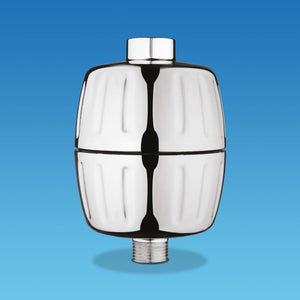Dry skin results from insufficient moisture retention. Without adequate hydration, the skin can quickly become tight, cracked, flaky, and itchy. Whether due to older age, harsh skincare products, low humidity, or an underlying skin condition, parched skin can be uncomfortable.
Luckily, many effective ways to reduce dry skin exist, even from the comfort of home. Keep reading to discover expert-approved tips to soothe and quench even the most stubborn dry skin.
Is it Normal to Have Dry Skin?
It’s not only normal to have dry skin; it’s likely. Between 41 and 99% of people experience some form of skin dryness, making it an extremely common skin concern.
While dry skin can be frustrating, it affects virtually everyone at some point in life, especially upon reaching older age. However, many people also experience dry skin in their younger years due to other factors, like sun exposure, low humidity, exposure to irritants, and genetics.
Various skin conditions that cause dry skin, like eczema and psoriasis, are also common. An estimated 31.6 million Americans have a form of eczema, while 7 to 8 million Americans have psoriasis.
What Causes Dry Skin?

There are many possible causes of dry skin, and multiple factors can contribute to a dry complexion. Generally, identifying what’s causing dry skin is the first step to achieving healthy, hydrated skin.
Possible causes of dry skin include:
- Age. As skin ages, its ability to retain water decreases, and it produces fewer natural oils, leading to dryness. One study found that 99.1% of people aged 65 and older in nursing homes reported having dry skin.
- Medical History. A medical or family history of certain conditions can lead to dry skin. These conditions include Eczema, Psoriasis, Dermatitis, Allergies, Kidney disease, Diabetes, Thyroid disease, and Certain hormone conditions.
- Genetics. Some people are born with an increased susceptibility to dry skin simply due to their genetic makeup.
- Changing Seasons and Weather. Cold air contains less moisture, making chilly winter weather a common cause of dry skin. Wind can also strip the skin’s outermost layer, leaving it dry and sensitive. Some people experience dry skin in the spring due to pollen allergies or “hay fever”. The body’s response to environmental allergens can trigger skin inflammation, making it red, itchy, and dry.
- Harsh Soaps and Detergents. Soaps, detergents, and skin care products containing harsh chemicals, fragrances, or alcohol can cause dry skin. Additionally, ingredients intended to treat acne or signs of aging (i.e. benzoyl peroxide, salicylic acid, AHAs, and retinol) can cause dry skin if they’re used improperly or excessively.
- Heat and Sun Exposure. Spending too much time in hot environments (like saunas and hot tubs) or under the sun can compromise the skin’s moisture barrier, leading to dryness and irritation. Sun damage is also thought to dry out the skin by diminishing its natural lubricating oils.
- Shower Routine. Long, hot showers deplete the skin’s moisture levels and natural oils, leading to dryness and irritation. Also, unfiltered shower water can contain a plethora of drying contaminants, including chlorine and chloramine.
Can Chlorine Cause Dry Skin?
Chlorine from unfiltered shower water or pool water can cause dry skin by damaging the skin barrier. Consider investing in a showerhead filter to prevent chlorine and drying minerals from triggering dry skin.
What Are the Symptoms of Dry Skin?

Dry skin symptoms can vary depending on the severity and cause of the dryness, as well as the individual’s age and skin type.
With this in mind, possible symptoms include:
- Flaky skin
- Cracked, bleeding skin
- Peeling skin
- Rough skin texture
- Severe itchiness
- Skin infections
- Stinging, raw, or burning skin
8 Tips on How to Improve Dry Skin
The following tips for dry skin can boost moisture retention, curb irritation, and strengthen the skin’s moisture barrier. Implementing a few (or all) of these strategies into your daily routine can improve and even eliminate the dry skin symptoms outlined above.
1. Gently Exfoliate
Gentle exfoliation sloughs away dead skin cells and stimulates skin cell regeneration. By preventing dead cells from accumulating on the skin’s surface, exfoliation improves the skin’s texture and radiance.
Experts generally recommend exfoliating once or twice per week for people with dry skin. Keep in mind that over-exfoliating can weaken the skin’s moisture barrier, causing more harm than good for sensitive skin.
Exfoliants are categorized as physical (cleansing brushes and scrubs) or chemical (AHAs and BHAs). A dermatologist can recommend the best exfoliant for your needs or experiment with exfoliants designed for dry, sensitive skin.
2. Stay Hydrated

Staying hydrated by drinking plenty of water throughout the day helps replenish moisture loss through the skin. Hydration also supports skin barrier function, making the skin less vulnerable to water loss from sun exposure, wind, and bathing.
Experts recommend that healthy adults drink between 9 and 13 cups of water daily to stay hydrated.
Additional hydration may be necessary after:
- Exercise
- Drinking alcohol
- Spending time outdoors
- Being in hot environments
3. Reduce or Avoid Harsh Chemicals in Water
Unfiltered tap water can contain a range of harsh, drying chemicals and minerals, including:
- Chlorine can remove the skin’s natural oils and weaken the moisture barrier. The EPA requires tap water in the United States to contain chlorine to prevent bacteria.
- Chloramines are chemical compounds containing chlorine and ammonia that can trigger dry, flaky skin. A specific chloramine, monochloramine, is included in tap water to kill bacteria.
Reducing exposure to these harsh chemicals by filtering shower water can allow dry skin to heal.
4. Do You Need to Apply Lotion to the Skin After Showering?
There may be some steps you can take to help avoid having to apply lotion after showering. For optimal results, ensure your shower water is warm, not hot, and try to keep the shower brief.
Applying a hydrating lotion to the skin after showering is often considered the best solution for extremely dry skin; however, many customers report to us that they no longer need to apply a moisturizing lotion after showering with our shower filters, since the shower filters reduce harsh chemicals that could contribute to dry skin.
If you still feel you need a hydrating lotion then after showering is the best time to apply lotion, as the skin’s pores are open and can easily absorb topical products.
Gently dry the skin with a clean microfiber towel before slathering on lotion. When considering other methods on how to reduce dry skin, look for a lotion that’s free of harsh ingredients. Check the ingredient list for humectants and emollients, which are key ingredients in effective lotions for dry skin.
- Humectants are ingredients that attract water and pull moisture into the skin. Examples include Hyaluronic acid, Glycerin, Ceramides, Lecithin, Sorbitol.
- Emollients create a protective layer over the skin, helping to lock in moisture. These ingredients are widely used to treat conditions like eczema and psoriasis. Examples include Petrolatum, Mineral oil, Lanolin, Dimethicone, and Colloidal oatmeal. Look for non-comedogenic and/or oil-free to protect the pores from being clogged.
Apply the lotion as directed. Make sure to use a lotion formulated for the facial skin on the face, as this skin is thinner and more sensitive than the skin on the rest of the body.
5. Wear Gloves While Doing Housework
Dry hands are particularly common among people who work with their hands or frequently do housework. Wearing gloves is a simple way to protect the skin barrier and prevent moisture loss.
Washing dishes exposes the skin to hot water and dish detergents, which can quickly strip the moisture barrier. Home cleaning solutions generally contain harsh chemicals that can dry out and irritate the skin.
By wearing latex gloves that cover the hands and forearms, it’s possible to keep harsh chemicals and hot water from reaching the skin. For a moisturizing boost, apply lotion before putting on the gloves.
6. Use a Humidifier in Your Home

Heating systems and air conditioners dehumidify indoor air. Low humidity levels in the air pull moisture out of the skin’s outermost layer, causing dryness. To offset the drying effect of low humidity levels in your home, consider using a humidifier.
Humidifiers work by continually releasing moisture into the air, preventing excessive dryness. Using a humidifier at home, especially in the spring and winter months, can keep the skin’s outermost layer hydrated. This may reduce and prevent dry skin.
7. Avoid Scratching Dry Skin
Itchiness is a common symptom of dry skin. But, scratching the itch can exacerbate dryness and lead to more severe skin conditions. Scratching dry skin can cause it to crack, open, and bleed.
Open, exposed skin is not only painful but also susceptible to bacterial infections. Those wondering how to reduce dry skin should refrain from scratching as much as possible.
Here are a few tips to avoid the temptation to scratch:
- Sit on your hands.
- Pat or tap the affected area.
- Clip your nails so that they’re short and smooth.
- Apply a cold compress to the itchy skin.
- Wear soft gloves at night to avoid scratching while you sleep.
8. Avoid Long, Hot Baths and Showers
Prolonged exposure to hot water depletes the skin’s natural oils and removes water from its outermost layer. This is why skin may be tight, parched, and dull after stepping out of a long shower or bath.
To prevent dry skin, stick to one bath or shower per day, lasting no longer than 10 minutes. Use lukewarm water rather than hot water, which is much harsher on the skin.
Those who struggle to take short showers may benefit from setting a timer. Additionally, while baths can be relaxing, they can lead to more moisture loss than showers. Stick to only the occasional bath, and steer clear of bubble baths containing harsh chemicals or irritants.
How to Prevent Dry Skin
Above, we listed ways to treat dry skin after it’s already occurred. But, people who are prone to dry skin may want to ward off dryness before it appears. Along with the tips listed above, key ways to prevent dry skin include:
- Apply sunscreen with SPF 30 or higher before sun exposure.
- Use a gentle, oil-free cleanser to wash the face.
- Wear soft, gentle fabrics with natural fibers, like cotton.
Combat Dry Skin with the Right AquaBliss Shower Filter

The AquaBliss Multi-Stage Shower Filter (SF220) reduces moderate levels of chlorine and pesticides and controls limescale build-up, dirt, and odors. The SF220 will reduce low to moderate chlorine levels. AquaBliss shower filters contain KDF-55, which has been shown to reduce heavy metals.
Reducing chlorine levels can significantly improve the feel and appearance of your skin and hair. No more red, dry, or itchy patches on your skin, and some customers even report no longer needing moisturizers after showering.
Are you ready for smoother skin and hair? The AquaBliss HD Multi-Stage Shower Filter (SF500) is the heavy-duty version of the SF220 that reduces high levels of chlorine by over 97%, pesticides, pharmaceuticals, controls limescale build-up, dirt and odors.
AquaBliss shower filters contain KDF-55, which has been shown to reduce heavy metals. The SF500 also features external sediment pads, which are ideal for heavy sediment problems, as you can wash/replace the sediment pads to keep the water flowing freely.
By reducing chlorine and chloramine (chlorine+ammonia) in your shower water, you will help relieve dry skin and premature signs of aging. AquaBliss customers also report significant positive results when using the AquaBliss Revitalizing Shower Filter (SF100) for other skin problems such as eczema and dermatitis.
If you are unsure which shower filter model is best suited to your specific concerns, contact customer service directly and they will review your water quality report and make a recommendation on the best shower filter for your specific concerns. Connect support@aquabliss.com or visit Amazon.
Overcome Dry Skin For Your Best Skin Yet
While dry skin can be uncomfortable, to say the least, it’s a very common skin condition. The ways to reduce dry skin included above are expert-approved for dryness caused by age, weather, genetics, heat, harsh chemicals, sun exposure, or underlying health conditions.
Simple fixes like drinking more water, shortening daily showers, and using high-quality filtering shower water. Implement the tips for dry skin listed above to soothe, hydrate, and protect the skin. If dryness persists despite using these strategies, then you may want to contact a dermatologist for personalized care.







